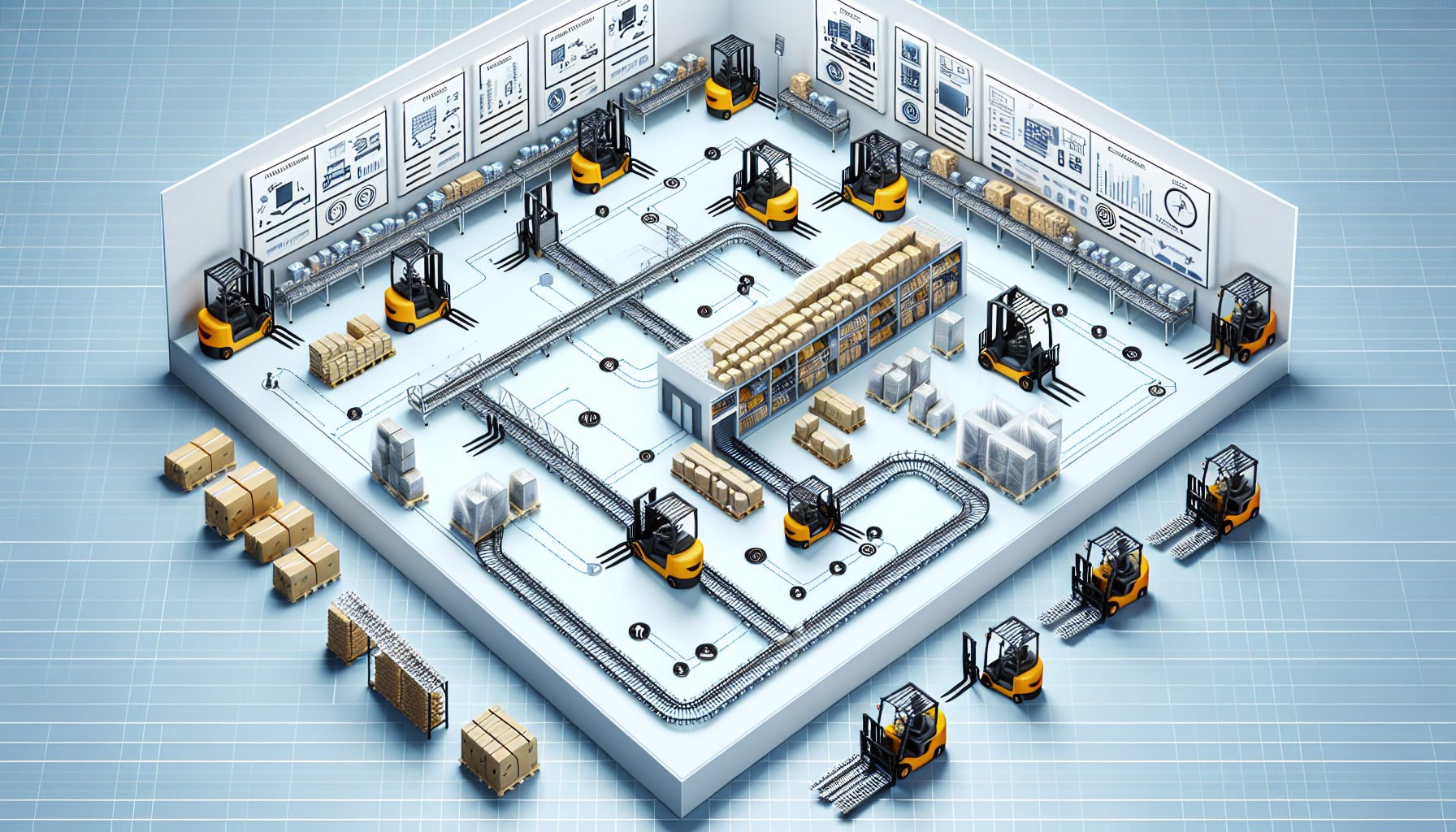In today’s fast-paced and competitive business world, warehouse operations play a crucial role in ensuring the smooth flow of goods and maintaining customer satisfaction. To achieve these goals, warehouse managers are constantly seeking ways to improve safety, increase productivity, enhance efficiency, and reduce costs. One effective solution that helps achieve these objectives is Material Handling Equipment (MHE) fleet optimization.
The Importance of MHE Fleet Optimization
Material handling equipment, such as forklifts, pallet jacks, and order pickers, are the backbone of warehouse operations. They are responsible for the movement, storage, and transportation of goods within the warehouse. However, inefficient utilization of MHE can result in wasted time, energy, and resources, leading to decreased productivity and increased costs.
This is where MHE fleet optimization comes into play. It involves analyzing and improving the utilization, maintenance, and management of material handling equipment to maximize their efficiency and effectiveness. By implementing MHE fleet optimization strategies, warehouse managers can experience numerous benefits, including:
- Improved Productivity: Optimized MHE fleets ensure that the right equipment is available at the right time and in the right place. This minimizes delays and downtime, allowing warehouse operations to run smoothly and efficiently.
- Enhanced Safety: Properly maintained and optimized MHE fleets reduce the risk of accidents and injuries in the warehouse. Regular maintenance schedules, equipment inspections, and training programs ensure that the equipment is safe to use and operated correctly.
- Increased Efficiency: MHE fleet optimization involves analyzing data on equipment usage and performance to identify inefficiencies and bottlenecks. By addressing these issues, warehouse managers can streamline operations, reduce unnecessary movements, and improve overall efficiency.
- Cost Savings: Optimizing MHE fleets can lead to significant cost savings. By ensuring that equipment is used optimally, warehouse managers can minimize fuel consumption, reduce maintenance costs, and avoid unnecessary equipment purchases.
- Extended Equipment Lifespan: Regular maintenance and proper utilization of MHE fleets can extend the lifespan of the equipment. This not only reduces the need for frequent replacements but also saves money in the long run.
MHE fleet optimization is a multifaceted process that involves various strategies and technologies. Warehouse managers can leverage advanced analytics, real-time tracking systems, and predictive maintenance tools to optimize their fleets effectively.
Key Strategies for MHE Fleet Optimization
Implementing MHE fleet optimization requires a comprehensive approach. Here are some key strategies warehouse managers can consider:
- Data Analysis: Collecting and analyzing data on equipment usage, productivity, and maintenance can provide valuable insights to identify areas of improvement.
- Equipment Standardization: Standardizing the types of MHE used in the warehouse can simplify maintenance, training, and spare parts management.
- Proactive Maintenance: Implementing a proactive maintenance schedule ensures that equipment is regularly inspected, serviced, and repaired to prevent breakdowns and prolong their lifespan.
- Operator Training: Providing comprehensive training programs for equipment operators ensures that they are familiar with the equipment, safety protocols, and best practices for efficient operation.
- Real-Time Tracking: Using advanced tracking systems and IoT devices allows warehouse managers to monitor equipment utilization, location, and performance in real-time, enabling timely interventions and optimizations.
- Optimal Layout and Workflow: Designing an efficient warehouse layout and workflow streamlines the movement of goods and minimizes unnecessary travel and handling.
- Automation and Robotics: Implementing automation technologies and robotics can improve efficiency, reduce human error, and optimize the utilization of MHE fleets.
Achieving optimal MHE fleet optimization requires expertise, experience, and the right technologies. For warehouse managers looking to optimize their operations and maximize efficiency, partnering with experienced warehouse optimization providers like HCO Innovations can be highly beneficial. With their expertise and innovative solutions, warehouse managers can enhance safety, productivity, efficiency, and cost-effectiveness within their operations.
In conclusion, MHE fleet optimization is essential for warehouse managers seeking to improve safety, increase productivity, enhance efficiency, and reduce costs within their operations. By implementing the right strategies and leveraging advanced technologies, warehouse managers can experience the numerous benefits of optimized MHE fleets. As warehouse operations continue to evolve, investing in MHE fleet optimization will undoubtedly be a key driver of success and competitiveness in the industry.

